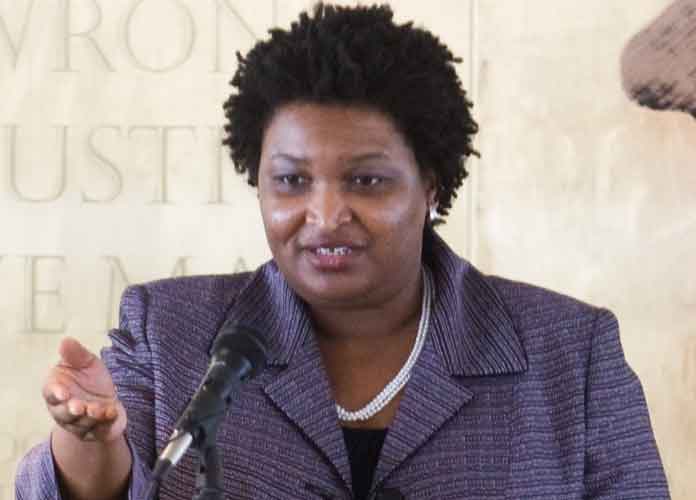Stacey Abrams Prepares Legal Battle For A New Vote For Georgia Governor’s Seat
Though voting for the midterm elections closed nearly two weeks ago, with the winners and losers of the races that took place across the country having largely been declared, in Georgia, the race for the governor’s seat has only grown more heated.
Members of the campaign for the state’s Democratic candidate for governor, Stacey Abrams, announced that they are preparing a lawsuit with Georgia’s Supreme Court in order to force a new round of voting.
Abrams’ campaign chairwoman, Allegra Lawrence-Hardy, along with her team of over 30 lawyers is compiling evidence to file a suit under Georgia’s stringent election law that allows losing candidates to challenge election results based on “misconduct, fraud or irregularities … sufficient to change or place in doubt the results.”
Unofficial results published by the state’s election officials show that Abrams’ competitor, former Georgia Secretary of State Brian Kemp (R), won the election by a very narrow 50.22 – 48.88 percent margin, crossing the state’s threshold for a forced runoff election by 18,000 votes.
Subscribe to our free weekly newsletter!
A week of political news in your in-box.
We find the news you need to know, so you don't have to.
Had Kemp failed to secure these votes, the two candidate would then have to compete in the December 4 runoff elections.
SLIDESHOW: DONALD TRUMP’S 30 CRAZIEST TWEETS
The challenge questions the legitimacy of the 18,000 votes that put Kemp over the runoff threshold, as the Abrams campaign claims that hundreds, if not thousands, of prospective voters were left disenfranchised on election night.
Members of the campaign who spoke to the AP emphasized the fact that the suit had not yet been filed, and that final say on whether to proceed would be left with Abrams herself.
If she does give the go ahead, Abrams would then claim that at least 18,000 Georgians had their ballots either thrown out or were prevented from voting for several reasons including long wait times, a lack of provisional ballots at polling places and broken voting machines.
“These stories to me are such that they have to be addressed,” said Lawrence-Hardy.
Kemp has blasted Abrams’ for trying to get around the election night results, calling her possible lawsuit a “disgrace to democracy” and an attempt to “count illegal votes.”
Kemp, whose political affiliation has drifted closer to President Donald Trump since the start of the midterms, has stayed firm in his belief that the uncounted ballots would not change the results.
Abrams has five days from the day the state certifies the November 6 results to file her suit with a court in Kemp’s home country. Kemp would then have between five and 10 days to respond to the suit. This would then give the presiding judge 20 days to set a date for a hearing.
State officials could certify the election results as soon as Friday, a fact that could push Georgia’s election debate well past the official December runoff date.
Get the most-revealing celebrity conversations with the uInterview podcast!








Leave a comment